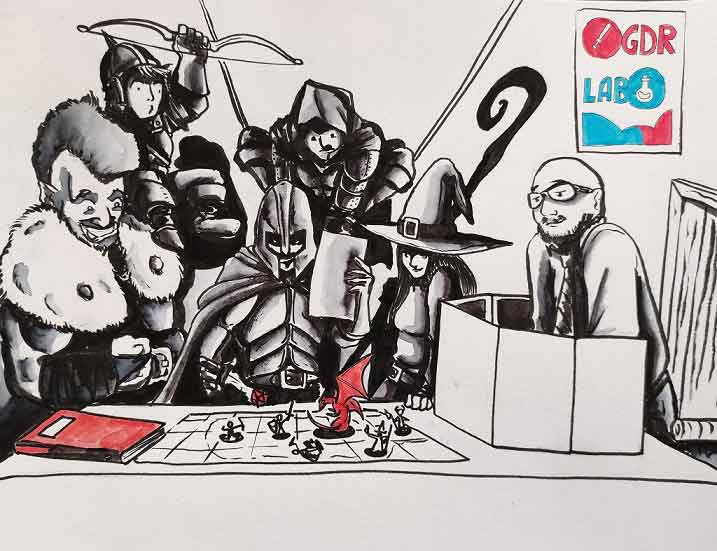
Technology breakthroughs and the widespread availability of high-speed internet connections have spurred a dramatic revolution in the gaming industry in recent years. The growth of online video game markets has been one of the most significant developments in this digital sphere. These online marketplaces have changed how players find, buy, and interact with video games.
As the gaming industry changes, online video game marketplaces remain at the forefront of innovation and transition. Let’s learn how the gaming business is changing and the possibilities and factors to consider by looking at how they affect game distribution, economics, player engagement, and the issues they provide.
Join us on this adventure as we explore the complex world of online video game markets and learn how they have influenced and continue to influence the gaming industry’s constantly changing environment.
When did Online Video Game Marketplaces gain Significance?
In the early to mid-2000s, online video game markets became much more popular. These markets were made possible by developing broadband internet connections and the rising acceptance of digital distribution. They have completely transformed the gaming business.
Steam was one of the first online video game marketplaces created by Valve Corporation and released in 2003. Steam became popular among gamers because of its user-friendly design, extensive game catalog, and extras like multiplayer matchmaking and automatic upgrades. Steam’s success signaled a turning point in the industry because it showed the possibilities of digital distribution and the ease it provided to developers and gamers.
Other significant firms entered the market in response to Steam’s popularity. The scope of online markets was further increased with the introduction of the Xbox Live Marketplace for the Xbox 360 platform in 2005 and the PlayStation Store for the PlayStation 3 console in 2006. These systems provided a seamless digital experience and gave console players access to various downloaded games and add-ons.
The influence of online video game markets has increased recently. Recent entrants have offered competitive alternatives to well-established platforms like the Epic Games Store, a video game item marketplace, which debuted in 2018, fostering more innovation and development in the sector.
In general, the importance of online video game markets started to become apparent in the early 2000s and has since become a significant aspect of the gaming industry, profoundly influencing game distribution, economics, and player involvement.
This is just history. Want to know how online video game marketplaces have impacted the gaming industry? Then, read until the end, as our next section is about it.
How Online Video Game Marketplaces Impacted the Gaming Industry?
Online video game marketplaces have a significant and far-reaching influence on the gaming industry. The distribution of games, the economy, player interaction, and community development are just a few of the facets of the business that these platforms have altered. Here are a few significant effects:
Improved Game Distribution
Online video game marketplaces have revolutionized how games are distributed by giving players a simple and quick way to find and buy games. They have made physical copies unnecessary, enabling rapid access to many books. This change has democratized the game distribution industry, enabling independent game makers to access a worldwide audience without the hassle of establishing extensive retail relationships or organizing physical distribution.
Better Economic Opportunities
Both platform owners and developers now have additional sources of income thanks to these markets. Various methods, including standard game sales, downloadable content (DLC), microtransactions, and subscription models, are available to developers to monetize their games. As a result, game makers now have access to a more varied and long-lasting business model that enables them to continue making money from their games long after the initial launch.
Indie Game Revolution
The popularity of independent games has mainly been attributed to the development of online video game stores. Independent developers may display their works on these platforms, increasing visibility and expanding their audience. This has encouraged innovation, creativity, and variety in game production. Indie games have become well-known and successful, upsetting the dominance of expensive AAA games and bringing new concepts to the gaming industry.
Community Building and Player Engagement
Online markets have made gaming more dynamic and socially connected, increasing player engagement and community building. Player interaction, experience sharing, and the formation of communities around certain games have all been made possible by features like user reviews, community forums, and social integration. This has promoted the development of esports, streaming culture, and content production, allowing gamers to demonstrate their prowess, amuse spectators, and participate in competitive gaming tournaments.
Digital Rights Management and Preservation
While online video game markets are convenient, they also pose questions about the preservation of gaming history and digital rights management. Issues including ownership rights, continued access to purchased games, and the preservation of older titles have become crucial considerations for players and industry stakeholders as games become more dependent on online services and digital licenses.
Change in the Retail Paradigm
The growth of online video game marketplaces has challenged the traditional retail model. Since more gamers choose to download and buy games digitally, physical game shops have experienced difficulties. Retailers have been forced by this change to change their business plans or broaden their product lines to stay competitive.
Future of Online Video Game Marketplaces in the Gaming Industry
Online video game marketplaces are expected to have a vibrant and transformational future in the gaming business. Here are several significant factors that affect their course:
Increased Market Rivalry
As online video game markets develop, we can anticipate more rivalry between current platforms as well as the creation of new ones. Platforms competing to draw and keep gamers will be driven by innovation, better features, and more excellent user experiences.
Focus on Cross-Platform Integration
Future markets are anticipated to give cross-platform integration priority, given the popularity of gaming across various devices and platforms. This entails seamless gameplay across platforms, including consoles, personal computers, and mobile devices, allowing gamers to access their games and progress. Cross-platform play, and interoperability are anticipated to increase, supporting a unified gaming environment.
Expansive Cloud Gaming
Cloud gaming, which allows players to play games straight from servers without the use of expensive gear, is growing in popularity. The development of cloud gaming services is anticipated to be significantly influenced by online video game markets. This will enable players to rapidly access a vast library of games regardless of their device’s processing capabilities, expanding the gaming community.
Integration of Virtual Reality (VR) and Augmented Reality (AR)
Online video game markets will include these immersive technologies in their platforms as VR and AR technology improves. This will make it easier for players to access and consume VR/AR content, significantly boosting the gaming experience and opening new design and interaction options.
Enhanced Personalization and Recommendation Systems
In the future, markets are anticipated to integrate machine learning and artificial intelligence (AI) algorithms to provide customers with more individualized gaming suggestions. By examining user preferences, playing patterns, and social connections, these systems can offer personalized suggestions that will increase player engagement and game discovery.
Monetization Models Will Keep Changing
Monetization methods will probably continue to develop, becoming more sophisticated and diverse inside online marketplaces. Further research on subscription services, in-game purchases, and other revenue sources may be done to give creators a stable income while maintaining value for players.
The gaming industry will change due to these developments, giving players more incredible experiences and creators additional opportunities to express their creativity.
Conclusion
In conclusion, online video game marketplaces have had a revolutionary influence on the gaming business. These platforms have revolutionized the distribution of games, the economy, player interaction, and community development. They have opened up gaming to the public, given creators new sources of income, and enabled independent game makers to flourish. Esports, streaming culture, and content production have all emerged due to online markets’ more dynamic and socially linked gaming environment. But continued attention is needed for issues like digital rights management and the preservation of gaming heritage.



